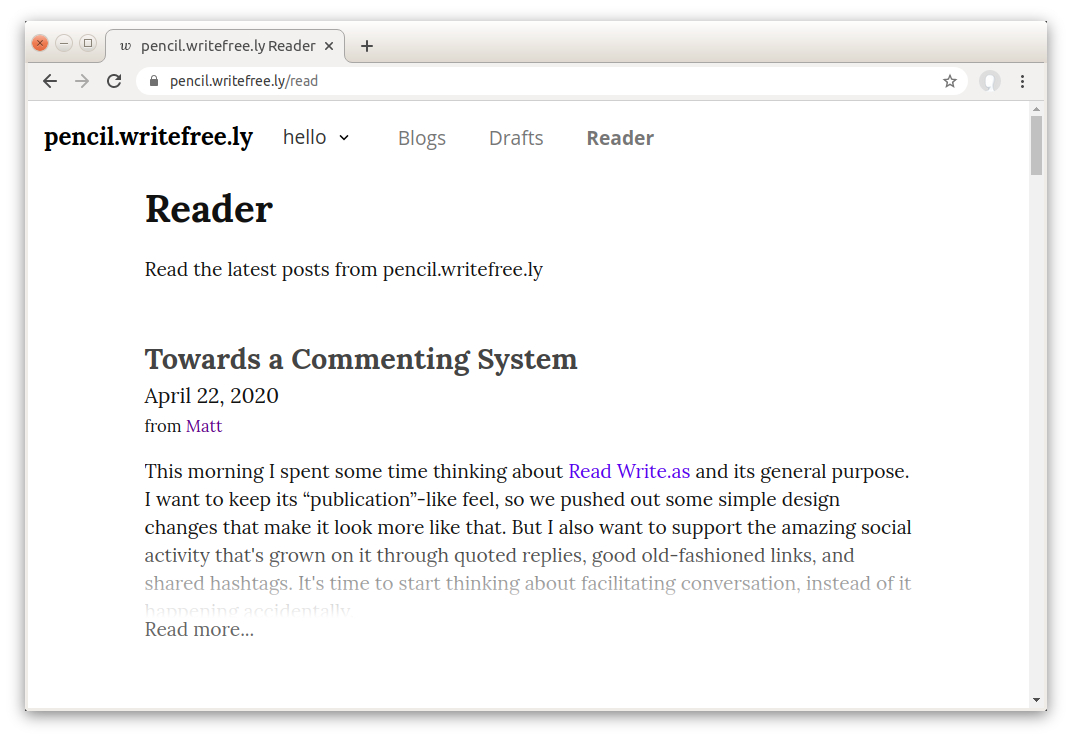WriteFreely: Clutter-free Self-hosted Blogging Platform for Writers
Table of Content
Written in the Go programming language to offer the best performance, WriteFreely is a lightweight blogging system aimed for hobby and professional writers.
WriteFreely supports Markdown syntax out-of-box, and offers a distraction-free interface with a limited clutter.

You can deploy your own instance on your server, or use the official hosting service Write.as which takes care of your installation, data backup and accounts for a small fee.
Features
- Lightweight system that can be installed on a minimal server.
- A distraction-free editor interface.
- Full Markdown format support.
- A readable output with a clutter-free interface
- Connect to your community.
- Supports images and files with its asset manager.
- Multilingual support: WriteFreely supports more than 20 languages including RTL (Right-To-Left) languages.
- Support collaborative writing for teams.
- OAuth 2.0 login.
- Organize your posts using hashtags.
- Developer can scale and extend its functionalities using its rich API.
- Easily publish your writings automatically to services like Mastodon, Pleroma to follow your blog updates.
- Create a multiple blogs on a multi-user instances for different audience.
License
The project is released under the AGPL-3.0 License.








